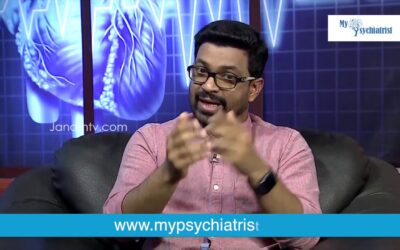Schizophrenia is a major mental disorder that primarily affects thinking. It affects interpersonal relationships, education, work and self-care of the individual. In addition to affecting the patient, schizophrenia also puts a lot of stress and burden on the caregivers and family members. According to estimates, schizophrenia affects 2 to 3 out of every 1000 persons. Schizophrenia may occur as a continuous illness which may or may not have specific periods of worsening. It may also occur as an episodic illness with the person being completely normal in between episodes. It is a chronic illness that requires regular and continued treatment to ensure that symptoms remain under control.
Based on the type of symptoms schizophrenia has been divided into many subtypes.
The most common type is Paranoid Schizophrenia. In this type of illness, the person is noted to be suspicious, and holds on to false beliefs that others (sometimes very specific persons or set of persons) are trying to harm him or those important to him in some manner. These beliefs are false and the logic behind the reasoning cannot be understood by others, however, the patient continues to hold on to these beliefs inspite of all attempts to disprove it. Another common symptom is ‘voices in the head’. The person can hear voices of known or unknown people talking either to him or amongst themselves. They may also act out on these, by either obeying what is told by the voices or talking back to the voices. The person may appear to be afraid, anxious and irritable. Sleep and appetite are usually not affected in the earlier stages. However, in later stages, there may be lack of sleep, and lack of adequate food intake, in addition to refusing to socialize, work, and take care of personal hygiene.
The other types of schizophrenia, namely disorganized, hebephrenic, undifferentiated, and catatonic have more pronounced symptoms with inability and lack of socialization, lack of touch with reality and surroundings, poor self-care and bizarre behaviours. Their speech is often not understandable because the words and sentences are often mixed up, they may slip off to different and unrelated topics, and they may use new words which have no meaning for others. The outcomes of these types of schizophrenia are generally worse compared to paranoid schizophrenia.
In long standing schizophrenia, the patient may also have what are known as ‘negative symptoms’. These include lack of emotional response (not being happy or sad as appropriate to the situation), not interacting with others, not speaking much, and lack of motivation and energy.
Schizophrenia is a heritable disorder and runs in families. However, even those without any relatives with schizophrenia may also develop this illness. Research has shown that persons with schizophrenia have abnormalities in the levels of certain brain chemicals (dopamine, glutatmate, serotonin etc.) in certain areas of the brain, which are responsible for these symptoms. The medications used in the treatment of schizophrenia balance these abnormalities and thus control the symptoms.
Although research has shown that those with schizophrenia have inherent abnormalities in the brain, people develop the symptoms of schizophrenia at different ages. Those who present earlier on, especially in childhood or adolescence (before brain development is completed) generally have more severe illness, and are more difficult to treat. It is also seen that the longer the illness is left untreated, the more severe the illness, worse the outcome, and more difficult it is to treat.
The holistic management of schizophrenia includes medications for control of symptoms, education and support for the caregivers, therapies aimed at improving “negative symptoms” and eventually integrating the person back into the society by ensuring that he is able to interact with people and perform adequately at work and in the family, and society.
The medications used for the treatment of schizophrenia are known as antipsychotics. They work by balancing the abnormalities in brain chemicals that occur in schizophrenia. Based on the type of symptoms and associated medical illnesses, the doctor will choose an antipsychotic suited for each patient. It is usually started at a smaller dose and gradually built up depending on how severe the symptoms are. The antipsychotic takes about 4 to 6 weeks for adequate action to set in although relief of symptoms may begin earlier. The treatment for schizophrenia needs to be continued for a long term. The duration and dose of which would be decided by the doctor based on severity and type of illness, response to the particular medication, side effects etc. In many cases, the medication will need to be continued indefinitely. In the initial stages, in addition to antipsychotics, other medications including sedatives may be given for control of symptoms.
Behavioural therapies and counselling are aimed at educating the patient and family and to manage negative symptoms and to improve social interactions.
Janam TV Interview part 3
https://www.youtube.com/embed/MQ_ccsXwkbc All you want to know about Mental Illness



0 Comments